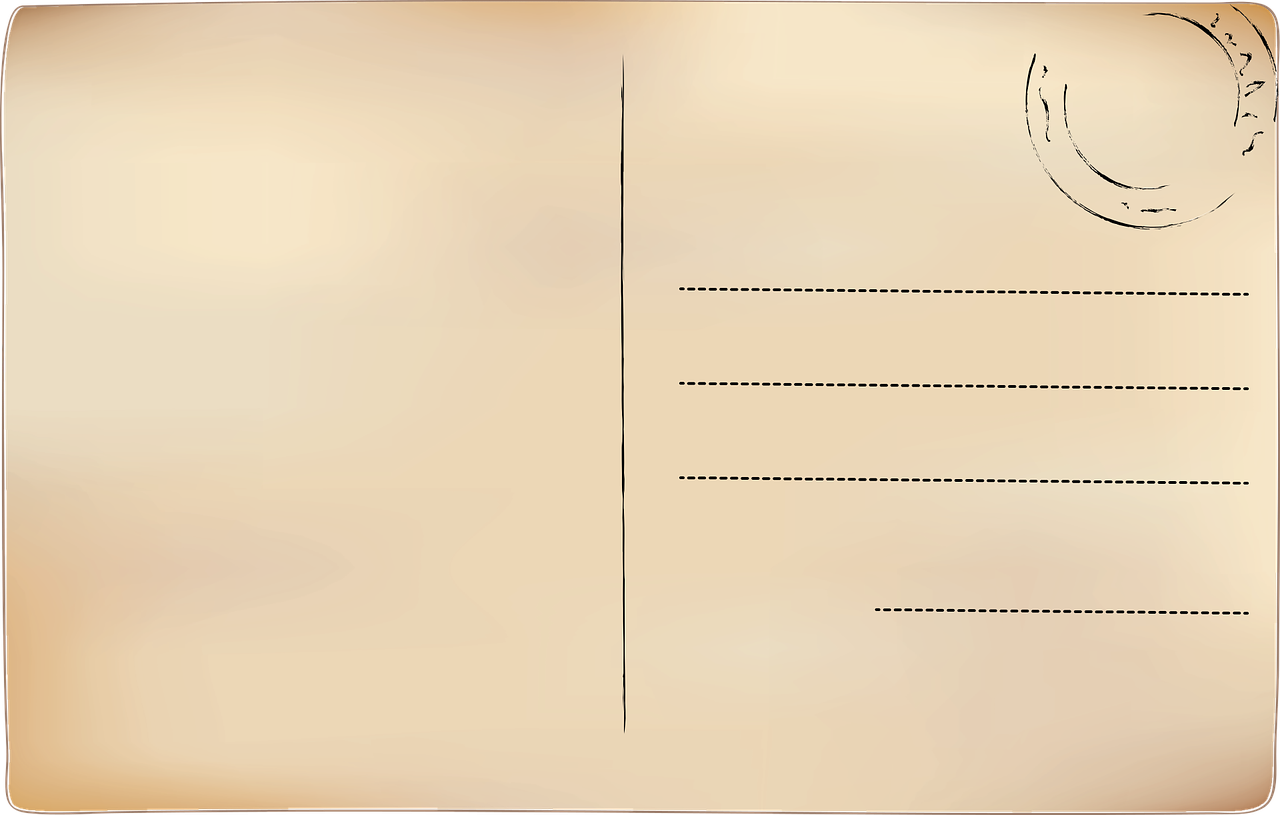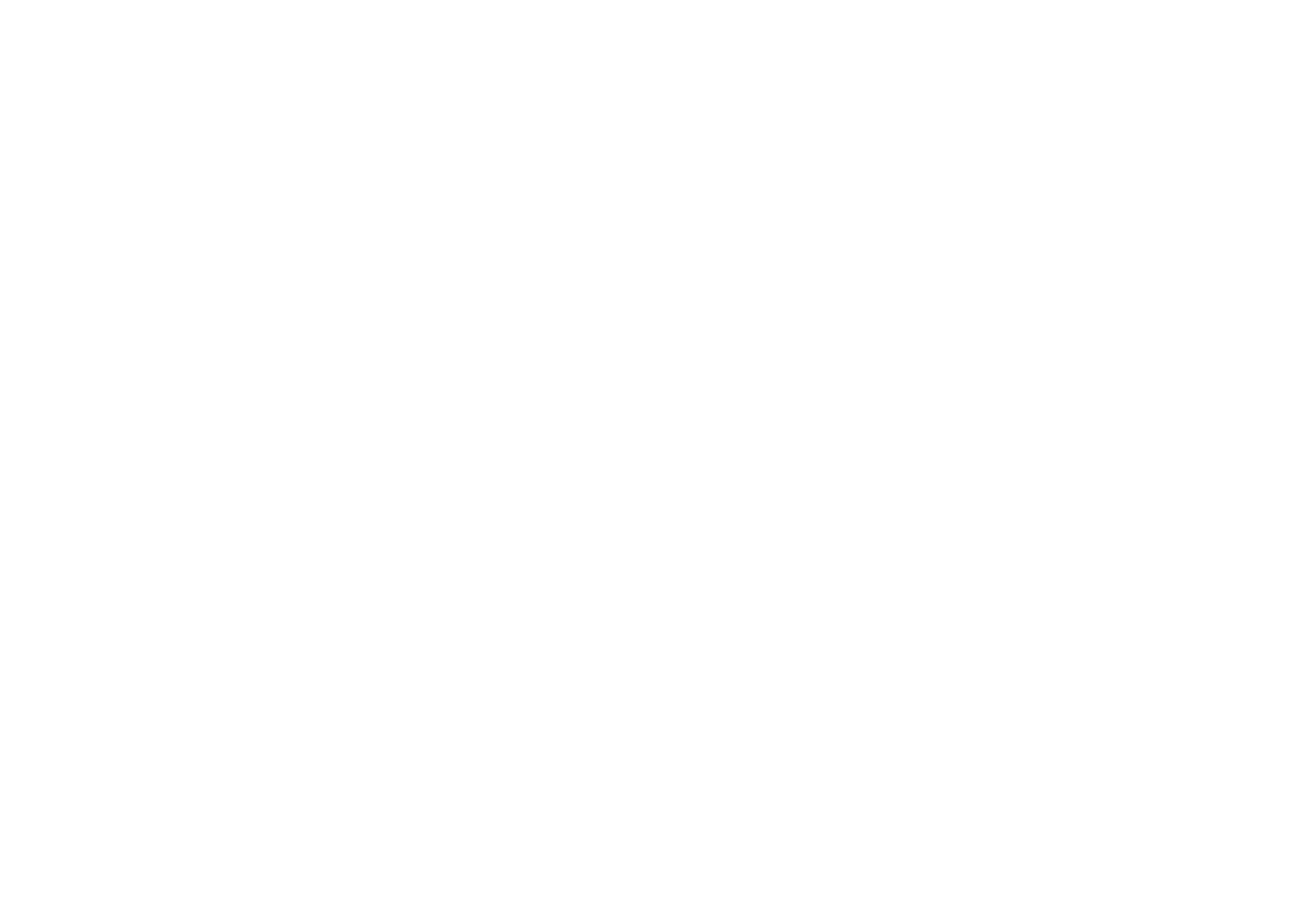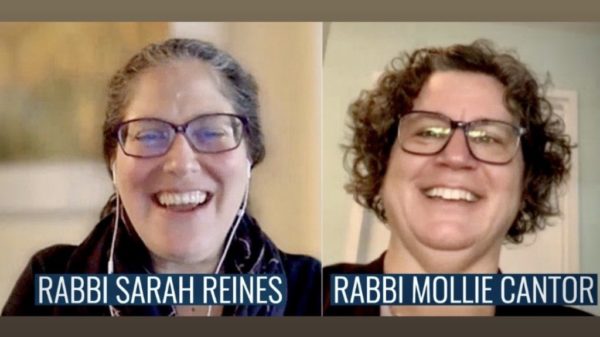Hi everyone! I’m Rabbi Sarah Reines with Temple Shaaray Tefila, and I’m here today on Zoom to talk with my good friend, colleague, and Temple Shaaray Tefila congregant, Rabbi Mollie Cantor.
Mollie is a chaplain and chaplain educator, and in addition to being a close friend, she’s also a rabbi to me, and someone I look to as a resource in challenging times. This is a very challenging time for us, and for people we love, so I thought it would be interesting to have a conversation about how we might manage distance when we want to be close to people.
Mollie, how’s everyone in your family doing?
Rabbi Mollie Cantor: They’re loud.
Rabbi Sarah Reines (laughing): Some things don’t change, even in a time of change.
RMC: But I will say there is a certain amount of anxiety in my house right now. The constant news reports and the isolation raises the sense that they don’t know what’s going on outside the apartment. There’s that urge to be with people, but you know you can’t be with people, and that can raise anxiety.
RSR: It’s interesting — it can be hard to be distant from people, but it can also be hard to be with people in such close confines for an extended time. So, challenges all around. I wanted to talk with you today because you’ve built a career around visiting with people and teaching pastors to visit with people who are unwell, or are struggling in some way. Can you tell us a bit about the nature of your work in general, and about the challenges that emerge in situations like this when we can’t be present for each other, especially when people are unwell?
RMC: We’re all suffering in many of the same ways, and our individual fears and anxieties are our own. Just allowing that to be true can begin to lighten the sense of panic, to know that you’re not alone in your longing to be with others, especially when those whom you love are hurting, knowing that your relationship to others is particular to you and your circumstances. If I say something that seems like a blanket to all, I know that it’s not necessarily true in every situation, but I do think there are some overlapping truths. The truth is that when we’re scared and lonely, we look to be with other people. When someone is hurting, we want to be with them. The thing we hear over and over — I was just listening to the governor before this conversation — we hear, “Stay away.” The hospitals have made it clear: you’re not even able to visit. That, I think, creates even an even greater sense of confusion and lack of control, because not only are you separated from the one you love, but you can’t even visit them. Not through your own fault, or lack of desire, but because of the situation, and for the wellbeing of all.
RSR: It feels so counterintuitive because everything human within us, and in Jewish tradition, encourages us to be with people when they’re hurting, and be a presence, even if you’re not saying anything.
RMC: Our tradition is very clear, and our rituals and prayers are: go and visit the sick, dance with the bride and groom, comfort the mourner. Over and over it’s about being present. And this is not present. So, how do we connect? How do we  stay in touch with those we love when we’re not allowed to be? To start, there’s this: our Zoom conference. If the person you love is well enough, and tech savvy enough, you can do this with them. I know not everybody is capable, both wellness-wise and tech-wise. I’ve had some very frustrating conversations with my parents these past few weeks. They try so hard and they’re so lovely. But there’s a lot of, “What? What? I can’t see you!” The humor of that sort of blends into the reality. It’s probably positive. Of course, if my parents read this, they may not be too happy about this [laughs]. So, I think that’s the first line — to reach out by video or telephone. It matters, even if you leave a message. I remember when my youngest brother was very ill and I got a voice message from a friend. They said, “Thinking about you and your family, and hoping everything turns out okay,” or whatever it was. And I thought, “Wow, that person is thinking about me,” and enough to stop whatever they were doing and reach out. I still think about that as a source of comfort. So, don’t hesitate to make a phone call.
stay in touch with those we love when we’re not allowed to be? To start, there’s this: our Zoom conference. If the person you love is well enough, and tech savvy enough, you can do this with them. I know not everybody is capable, both wellness-wise and tech-wise. I’ve had some very frustrating conversations with my parents these past few weeks. They try so hard and they’re so lovely. But there’s a lot of, “What? What? I can’t see you!” The humor of that sort of blends into the reality. It’s probably positive. Of course, if my parents read this, they may not be too happy about this [laughs]. So, I think that’s the first line — to reach out by video or telephone. It matters, even if you leave a message. I remember when my youngest brother was very ill and I got a voice message from a friend. They said, “Thinking about you and your family, and hoping everything turns out okay,” or whatever it was. And I thought, “Wow, that person is thinking about me,” and enough to stop whatever they were doing and reach out. I still think about that as a source of comfort. So, don’t hesitate to make a phone call.
RSR: And if you’re not feeling up to speaking — let’s say you’re the person who’s not well, either physically or emotionally, you just don’t feel like you can respond — you know, the nice thing about a visit in the hospital is that you can sit there in the corner and read a book. Or you say to someone, “I’m in the waiting room.” If you don’t want to apply pressure, making them feel like they have to answer the phone, or respond to the e-mail, what do we do?
RMC: That’s a hard one. One of the things I like to think about is, stars are the same stars, the sun is the same sun, and the parts of the world that are natural — the ocean tides, the rain, or whatever it is — doesn’t change whether we’re sick or not. I can imagine lying in bed, knowing that my best friend is seeing the rain, too, or that my family is safe inside on a windy day. Hopefully, it’s those things that would begin to bring me relief in my loneliness — knowing that they wanted to be with me, and if they could, they would. I used to be very cynical about meditation vibes and putting your thoughts in the universe, but in recent years, I feel that it matters. I get a sense that if I really think hard on something, and really put my energy into hoping my friend is safe, or my loved one is safe, then somehow that shifts something in me and in the world. So, I think for both the person in the bed and at home, putting that energy into the world can be a very positive force.
RSR: Did you have some kind of event or moment when you felt that shift in your thinking or attitude toward that?
RMC: I was challenged by a student.
RSR: Interesting! Sometimes students are our teachers.
RMC: I had a student who said, “Contemplation is important.” And I said, “Doing, doing! Sitting is nothing, doing is everything.” And I was wrong in that. I mean, doing is very important. But the intention, the centering of the doing is in fact what needs to be done.
RSR: It also makes me realize that sometimes, when someone we love is not well, or in grief, and we want so badly to “do” — sometimes that’s more us, that we need it. The distance may weigh more heavily on we who want to be there. Maybe that’s something to remind ourselves — that they may just be too tired, or achy, or need to get that rest to get well. We can acknowledge we want so badly to be there, and that’s love. I believe if you love someone that much, they know it.
RMC: For sure. And again, if you could be there, you would be there. But not being able to — being forbidden to be there — it does change the dynamic. We were taking our six-foot distance walk and ran into a colleague of mine who was saying that, because sometimes he can’t go into the hospital rooms, that he will call the family from outside the room and let the family hear the blessing, and their family member, although not in direct contact, is being prayed for by hospital staff. When he shared that story, it was really very moving to me. Presence is not always simply being in someone’s proximity. Presence is really the spirit of presence. We talk about all of us standing at Sinai — it’s one of my favorite verses. Of course, I wasn’t there. None of us were.
RSR: Did it even happen at Sinai? [laughs]
RMC: It doesn’t even matter.
RSR: Right.
RMC: It’s a way that I’m connected to the larger community of Jews. I feel like, if we all stood at Sinai, then I stood there next to you. It’s a connecting. It’s abstract and hokey, corny even. But I think there’s some validity there. I feel like I have to put my cynicism aside and allow myself to fill with the spirit of connection when I’m disconnected. And it’s not easy. I’m smiling and I’m getting energized from the conversation, but I don’t think that it’s easy. It’s not easy for any of us. It’s not always easy to be connected emotionally when you’re distant, and sometimes you just want to curl up and forget about it all because it’s so painful to be separated from the people we love. Sometimes we just forget our intentions, and that’s okay, too. Sometimes we stop and need to have a snack and dance around the apartment. And then we start again. We make sure that the people who we love, that we’re sending those intentions out. That we’re making phone calls when we can make phone calls. That we’re doing the most that we can do, in a way that satisfies us.
RSR: I’m also thinking about when you ran into your colleague, who’s also a chaplain, on your walk, and maybe it’s just a reminder to us that the people who are proximate to the person we love have hearts, and are also feeling things very strongly. Very often you can receive care from somebody who may be a stranger to you, but there’s such a deep bond and empathy. I remember when my mother was in the hospital, and some of the people who were so tender and caring to her were members of the maintenance staff. They would ask her how she was, or just do or say little things that would show such deep empathy. People who are in those environments, or even if your loved one is in an apartment building, and they have a doorman or neighbor, there are good vibes and feelings and words and actions being shared that are not from you, but the person that we love is being cared for. There is love in the world. I think at a time like this — the hearts are soft. That’s been my experience.
RMC: Yes. There’s the cheering that goes on at seven o’clock in the evening, from our windows and out into the universe, for the healthcare workers. It’s so heartening, and I think that’s exactly what you’re talking about. It’s, “Thank you, all of you, for working so hard on our behalf. Thank you for caring for the people we care about.” It’s moving. And it’s loud.
RSR (laughing): Yeah.
RMC: It’s loud, and it should be louder. Hopefully the healthcare workers know how much we appreciate them.
RSR: This may sound kind of silly, but one thing I’ve also been noticing — I needed to get stamps the other day. I’m doing more mailing these days. I have postcards  that I send. Mail is up and running, and people are making sure we can communicate in that way. There’s something about that old fashioned getting something in the mail, or even something dropped off or slipped under the door. Sometimes there are ways we can communicate that’s not virtual or spiritual, but a literal delivery. That can be a really lovely way of letting someone know you’re thinking of them. Any other thoughts to leave us with?
that I send. Mail is up and running, and people are making sure we can communicate in that way. There’s something about that old fashioned getting something in the mail, or even something dropped off or slipped under the door. Sometimes there are ways we can communicate that’s not virtual or spiritual, but a literal delivery. That can be a really lovely way of letting someone know you’re thinking of them. Any other thoughts to leave us with?
RMC: I think it’s really important to remember that we’re all just doing the best that we can.
RSR: One of the most important things that one of my favorite rabbis ever said to me was, “Lead with kindness.” And that’s always true, but especially now. It’s easy sometimes to question or feel resentful if we feel someone isn’t doing enough or reaching out enough, maybe we don’t want to make an assumption about what that might mean. They may be putting a lot of love out into the air to us at that moment. And let’s lead with kindness toward ourselves, too. To lead with kindness — you taught me that, and I carry that with me.
RMC: Thank you.
RSR: Well, thank you.
RMC: It’s a love fest.
RSR: Thanks for being such a caring friend and rabbi and healer.
RMC: Thank you for including me today. Every conversation is a moment of lightness for me.
RSR: Same here. I’ll remind everyone that if you have any questions or needs, please be in touch with me at Temple Shaaray Tefila. If you have questions for Mollie, I can pass them on to her. Thanks for being with us! Bye!
RMC: Bye.

